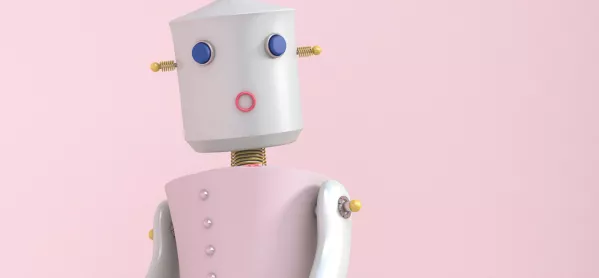It’s been swings and roundabouts for technology in education this week. HMC, that grouping of leading independent schools, debated artificial intelligence at its Spring conference on Wednesday. A great proponent of AI in education, and co-author of a new book on the topic (The Fourth Education Revolution: will artificial intelligence liberate or infantilise humanity?), is Sir Anthony Seldon. He’s excited by the possibilities of where AI can take the place of a teacher, "individuating" (a new word to me) learning for every child.
Wow. The fact that every child in a classroom can constantly enjoy individual attention and guidance renders even the most active classroom practitioner slow by comparison.
But technology doesn’t supply all the answers. Sir Anthony also warned that the overuse of some apps can actually de-skill people. Many people of all ages are losing the ability (if ever they had it) to read a map. Whatever sat-nav system you have on your phone or in the car, it talks you through the route to your destination.
But do we need that map-reading skill anymore? It’s debatable. A survivalist might be outraged: how would we cope after the Apocalypse? The rest of us, however, are content to reach for the smartphone. It will tell you how far it is, and you don’t need study the map-book to calculate how long it will take. Indeed, the days are past of forever finding that your destination is precisely on a page-turn.
Another speaker at HMC, UCL’s Professor Rose Luckin, has previously declared that perpetuating a knowledge-based curriculum is "naïve": we can find the whole corpus of human knowledge online. That’s not a new thought. Albert Einstein used to say he needed to remember only his name: anything else he could look up.
Can robot teachers inspire pupils?
So does this brave new world offer us creative, free-ranging brains like Einstein’s, uncluttered by facts, figures, addresses and phone numbers? Those are all available at the touch of a button. We can leave huge, empty, fertile spaces in our brains for developing new insights and great ideas.
But snags remain. Professor Luckin warned that the tech companies developing AI for education aren’t involving teachers in the process, the very people who know about what happens in young minds and how children learn best. We shouldn’t be surprised: teachers are rarely involved in policy formation, so why should anyone think to ask them about software designed to help children learn?
Meanwhile, former government adviser Tim Oates, writing a blog for the Council of British International Schools (COBIS), has issued a warning about personalised learning, under which heading we might include computer- or AI-led learning. The problem with personalising, individualising or individuating a child’s learning lies, Oates claims, in the very advantage of (as the saying is) “starting where the child is at”. The danger is that the child is likely to stay there: the very starting point can reflect low expectation and thus become a limitation.
That image contrasts with inspirational, challenging teaching. The best teachers have always captured their pupil’s interest, so that they want to find out more. But it’s more than that. Excellent teaching encourages children to ask themselves (not their teacher or the computer) hard questions, to seek original solutions, to move on from the “how” and “why” to the “what if?”.
Will AI do that for us? It certainly won’t unless we involve the very best teachers in the development of education-based AI.
AI is frequently cited as the solution to teacher shortages. I can’t disagree that a brilliantly-programmed computer would be better than an inadequate teacher – or no teacher at all.
Nonetheless, I’m still unconvinced. Call me a dinosaur, but I can’t shake off my belief that no artificially-created intelligence will ever stimulate and guide deep learning in the way the very best teachers do.
Dr Bernard Trafford is a writer, educationalist and musician. He is a former headteacher of the Royal Grammar School, Newcastle, and past chair of HMC. He is currently interim headteacher of the Purcell School in Hertfordshire. He tweets @bernardtrafford





